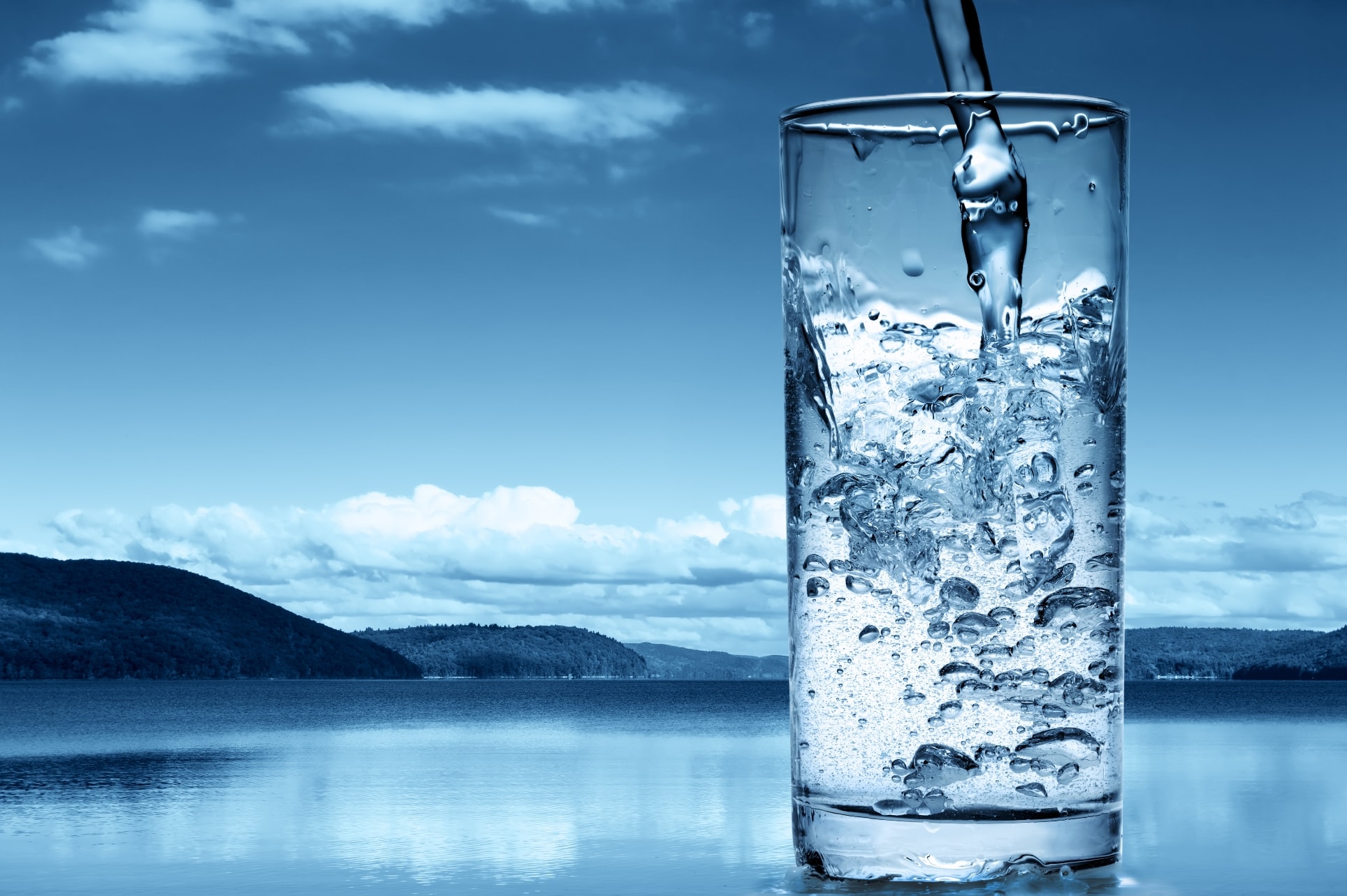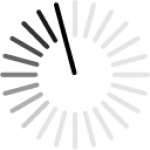Once you make a booking in the calendar through Get started and you are acquainted with the How it works , the terms & conditions are like following:
ONLINE COACHING:
The program will lead you automatically through the check-out and payment procedure. In case of cancellation up to 3 days prior to the start of the online coaching, you will be charged 70% of the fee. Later cancellation shall be forfeited in entirety.
GROUP LIVE COACHING
Please have in mind that the fee for a live group coaching has to be paid no later than 7 days prior to the coaching. This is also the deadline for the entire fee reimbursement. In case of cancellation up to 3 days and later prior to the start, the conditions are the same as for the online coaching.
SPLOŠNI POGOJI SPLETNE TRGOVINE HEALTHIA D.O.O.
1. SPLOŠNO
V splošnih pogojih spletne trgovine Healthia (v nadaljevanju: spletna trgovina) so določeni pogoji
nakupa in prodaje izdelkov, ki jo upravlja podjetje Healthia d.o.o., Drnovo 2, 1241 Kamnik (v
nadaljevanju: ponudnik), ki je registrirano za opravljanje prodaje prek spleta.
Spletna trgovina omogoča nakup prehranskega dopolnila Regulatpro prek spletnega
naslova: www.healthiacoach.com.
Splošni pogoji so sestavljeni v skladu z veljavno slovensko zakonodajo in Zakonom o varstvu
potrošnikov (ZVPot). Splošni pogoji so javno objavljeni na spletni strani in enostavno dostopni na dnu
celotne spletne strani. Ponudnik pred nakupom seznani s splošnimi pogoji ter zahteva, da se kupec z
njimi strinja, preden opravi nakup. V nasprotnem primeru kupec ne more opraviti nakupa. Ponudnik
si pridržuje pravico, da kadar koli in brez predhodnega obvestila spremeni splošne pogoje spletne
trgovine. Spremembe začnejo veljati z dnem objave. Vse spremembe splošnih pogojev so za
uporabnike zavezujoče.
2. OPREDELITEV POJMOV SPLETNE TRGOVINE
Uporabnik spletne trgovine je oseba, ki spletno trgovino uporablja.
Kupec v spletni trgovini je uporabnik, ki opravi nakup prek postopka vnosa podatkov za dostavo
izdelkov. Kupec je lahko fizična ali pravna oseba. Če je kupec pravna oseba, se v polja za vpis
podatkov o podjetju vnesejo osebni podatki zakonitega zastopnika pravne osebe. Za kupce, ki so
pravne osebe, ne veljajo določila ZVPot, ampak določila iz teh splošnih pogojev.
Naročilo so izdelki, ki jih je kupec naročil v spletni trgovini.
3. NAROČILO
V spletni trgovini je mogoče naročiti izdelke kadarkoli, v slovenskem jeziku, dostavljajo pa se na
področju Slovenije. Izjemoma se lahko dostavijo izdelki tudi znotraj Evropske unije.
Če nakup opravi pravna oseba, je treba izpolniti dodatna podatkovna polja za identifikacijo pravne
osebe in odgovorne osebe pravne osebe.
Naročilo postane veljavno ter nepreklicno, ko ga kupec odda. Nato prejme elektronsko obvestilo
ponudnika o oddaji naročila. To elektronsko obvestilo ni potrdilo, da je izdelek na zalogi ali da se je
začela odprema. Pri plačilu po predračunu bo kupec obvestilo o potrditvi in odpremi naročila prejel
takoj po plačilu naročila. Ko je skupni znesek naročila nakazan na tekoči račun ponudnika, je naročilo
plačano. Za plačilo naročila po predračunu ima kupec na voljo 7 dni, če v tem času naročila ne plača,
lahko ponudnik naročilo prekliče.
Če naročenega izdelka ni na zalogi ali naročila ni mogoče izvesti zaradi drugih razlogov, bo kupec o
tem obveščen po elektronski pošti. V primeru napake lahko kupec naročilo v času do prejema
elektronskega obvestila o potrditvi in odpremi naročila prekliče brez stroškov.
Če ponudnik smatra, da je prišlo do zlorabe spletne trgovine, lahko naročilo zavrne. Z izvedbo
naročila kupec potrjuje, da je bil seznanjen s splošnimi pogoji in se z njimi strinja.
Pogodba o nakupu je shranjena pri ponudniku. V vsakem primeru pa lahko uporabnik zahteva
poročilo o nakupu prek elektronske pošte: info@healthiacoach.com.
4. POSTOPEK NAKUPA
4.1. Koraki, ki vodijo do nakupa
Pri nakupu se izvedejo naslednji koraki:
– Iskanje posameznega izdelka v ponudbi izdelkov spletne trgovine
– Izbor izdelkov v spletni trgovini
– Dodajanje izbranega izdelka v košarico
– Izbor količine izdelka za nakup v nakupovalno košarico
– Pregled cene izbranega izdelka v izbrani količini
– Vpis podatkov o kupcu (email, naslov za dostavo)
– Dodaja naslova za dostavo, v primeru, da se želeni naslov razlikuje od primarno vnešenega
– Izbor načina plačila (po predračunu ali preko sistema PayPal)
– Pregled naročila z morebitnimi stroški dostave
– Potrditev in oddaja naročila ter tako zaključek nakupa
4.2. Možnost za prepoznavanje in popravke napak pred oddajo naročila
Pred zaključkom in oddajo naročila je kupcu omogočeno, da:
– Vidi in pregleda, katere izdelke in izbral in dodal v košarico
– Vidi in pregleda ceno posameznega izdelka in skupno ceno vseh izbranih izdelkov ter količino
– Vidi in spreminja količino izbranih izdelkov
– Odstrani izdelke iz košarice
– Dodaja račun za podjetje
– Spreminja način plačila
Healthia, d.o.o. kot ponudnik pošlje potrdilo o prejemu naročila na elektronski naslov kupca,
ki ga je ta navedel. Vsa naročila se v elektronski obliki hranijo pri ponudniku.
5. CENE
Vse cene so v evrih (EUR) in vključujejo davek na dodano vrednost (DDV), ne zajemajo pa vedno
stroškov dostave oziroma poštnine, na kar je kupec izrecno obveščen v postopku nakupa. Pri nakupu
veljajo cene in popusti v trenutku oddaje naročila. Akcijske cene oz. posebni popusti, veljavni ob
nakupu, se ob oddaji naročila samodejno upoštevajo in jih ni treba posebej uveljavljati. Če se akcijska
cena ali popust zaradi kakršnega koli razloga ob končnem obračunu v sistemu ne upošteva, mora
uporabnik ponudnika o tem predhodno obvestiti in zahtevati popravek obračuna ali odpravo napake
v ceni. Če kupec poravna znesek, ki je bil končno obračunan brez popusta ali akcijske cene, se šteje,
da je sprejel ceno iz končnega obračuna in pri ponudniku ne uveljavlja naknadnega ugovora.
Ponudnik se lahko kljub temu po lastni presoji odloči, da kupcu povrne razliko v ceni ali mu izda
dobropis za prihodnje nakupe.
Pridružujemo si pravico do dnevnih sprememb cen izdelkov v spletni trgovini brez predhodnega
obvestila.
6. MOŽNOSTI PLAČILA
Dostava za Slovenijo: v spletni trgovini so kupcu z dostavo v Sloveniji na voljo 3 možnosti plačila:
– plačilo s plačilnimi karticami preko sistema PayPal: Visa, Mastercard, Maestro. Po oddaji naročila
je kupec preusmerjen na varen plačilni sistem PayPal.
– plačilo po predračunu, neposredno na transakcijski račun ponudnika: predračun je poslan na e-
naslov kupca. Kupec pri plačilu predračuna navaja podatke in referenčno številko predračuna.
Naročeni izdelki bodo odpremljeni takoj po prejetem plačilu. Dokler ni plačana celotna kupnina,
ostane naročeno blago last ponudnika.
Dostava za tujino: izjemoma se lahko v spletni trgovini kupcu blago dostavi tudi izven Slovenije (v
države Evropske Unije). Na voljo sta obe zgornji možnosti plačil.
7. DOSTAVA
Dostavo opravlja Pošta Slovenije na želeni naslov. Trenutno so naročila v Sloveniji oproščena
dostavnih stroškov. Pri eventuelnih naročilih izven Slovenije in znotraj Evropske unije pa se dodajo
stroški pošiljanja kot jih ima določene Pošta Slovenije za priporočeno pošto, ter kot vrednostno
pošiljko, v višini končne vrednosti izbranih izdelkov.
8. DOBAVNI ROK
Dostava za Slovenijo: Dobavni rok naročila za izdelke na zalogi je praviloma 2–5 delovnih dni. Za
izdelke, ki trenutno niso zalogi, je dobavni rok naveden pri izdelku (navadno 7 delovnih dni). Če je
treba izdelke naročiti in je rok dobave daljši, ponudnik o tem obvesti kupca z elektronskim
sporočilom.
Dostava za tujino: Dobavni rok za naročila na zalogi je od 7-14 dni. Za izdelke, ki trenutno niso na
zalogi, je dobavni rok okvirno 14-21 dni. Če je treba izdelke, ponudnik o tem predhodno obvesti
kupca z elektronskim sporočilom.
9. VRAČILO IZDELKOV
Skladno z 43. členom Zakona o varstvu potrošnikov odstop od nakupa ni možen kadar gre za naročilo
prehranskega dopolnila. To ne velja v primerih dostave napačnih izdelkov.
Odstop od nakupa ni možen v posebnih primerih, določenih v ZVPot ter v morebitni drugi zakonodaji
s področja prehranskih dopolnil.
Če je potrošnik izdelek že prejel in od naročila odstopi (zaradi napačne izbire izdelka), mora izdelek
nepoškodovan in v nezmanjšani količini poslati ponudniku v 14. dni po poslanem sporočilu o odstopu
od naročila. Priložen mora biti račun. Zanimal nas bo tudi razlog za vračilo.
Ponudniku ni treba sprejeti blaga in s tem odstopa kupca od nakupa (ter posledično vračila kupnine),
če je bila embalaža poškodovana ali se je njegova količina zmanjšala.
K vračilu izdelka je obvezno treba priložiti kopijo originalnega računa.
Kupec lahko blago vrne tako, da pošiljko pošlje na naslov ponudnika, pri čemer stroške vračila blaga
krije kupec. Pošiljko pošlje na:
Healthia d.o.o.
Drnovo 2, 1241 Kamnik
V primeru zamenjave blaga, ki ni posledica reklamacije, kupec krije vse stroške povezane s tem, to je
stroške vračila blaga, stroške ponovnega pošiljanja blaga in morebitno razliko v ceni.
10. REKLAMACIJA
Ponudnik odgovarja za stvarne napake kupljenih izdelkov v spletni trgovini. Kupec sporoči
reklamacijo na e-naslov: info@healthiacoach.com, vrnjenemu blagu pa mora priložiti kopijo
originalnega računa. Ponudnik bo v 5 delovnih dneh po pisnem sporočilu kupca potrdil prejem
reklamacije in mu sporočil, kako bo potekal postopek obravnave reklamacije.
11. REŠEVANJE SPOROV
Kupec se v primeru napak pri pošiljanju ali na dobavljenem blagu obrne najprej na ponudnika, na
info@healthiacoach.com , s pritožbo. Ponudnik v primernem času kupcu odgovori po elektronski
pošti in sicer tako, da pritožbo zavrne ali potrdi ter ponudi možne rešitve.
V skladu z 32. členom Zakona o izvensodnem reševanju sporov (ZIsRPS) Healthia d.o.o. ne priznava
pristojnosti izvajalcev IRPS za reševanje potrošniškega spora, ki ga kupec lahko sproži v skladu s tem
zakonom. Pritožbo lahko kupec vloži tudi na EU platformi za spletno reševanje potrošniških sporov
(SRPS). Spletna povezava do SRPS je dostopna tukaj.
12. ZAGOTAVLJANJE ODGOVORNOSTI in ODGOVORNOST
Healthia d.o.o. zagotavlja svetovanje o izbranih izdelkih, tako, da nudi dostop preko e-maila
info@Healthiacoach.com ali v izjemnih primerih preko telefona 041 435500, od ponedeljka – petka
10h-14h.
Ponudnik ne prevzema odgovornosti za morebitne posledice pri uporabi spletne trgovine in vanje
vključenih vsebin. Ponudnik si prizadeva predstaviti čim bolj točne in posodobljene podatke, pri
čemer pa ne izključuje morebitnih nenamernih napak glede cen, dobavnih rokov, opisov izdelkov ipd.
Ponudnik spoštuje vestno in pošteno poslovno prakso, od kupca pa pričakuje, da bo pregledal končni
obračun pred njegovim plačilom in ga v primeru nepravilnosti na to predhodno opozoril. Kupca
zavezuje odgovornost pri pravnem prometu, ki nastane ob plačilu kupnine, s čimer prizna pravilnost
končnega obračuna in naročenega blaga. Fotografije izdelkov so simbolične.
13. ZASEBNOST IN VARSTVO OSEBNIH PODATKOV
Podatki, ki jih uporabnik posreduje v nakupnem procesu (kontaktnih obrazcev) v spletni trgovini ali
preke e-pošte so zaupni in se obravnavajo v skladu z veljavno slovensko zakonodajo. Ponudnik jih bo
varoval ter preprečeval njihovo zlorabo. Osebni podatki bodo uporabljeni le za namene, za katere je
uporabnik dal svoje soglasje. Za varovanje osebnih podatkov pa je odgovoren tudi uporabnik.
Uporabniki, ki so oddali naročilo v spletni trgovini ali so oddali e-naslov za prenos priročnika,
se avtomatično strinjajo, da so naročeni na elektronske novice Healthia Club. V teh ponudnik obvešča
o novostih, prodajnih ugodnostih in drugih prodajnih dejavnostih. Naročniki na e-novice se lahko v
vsakem trenutku odjavijo s klikom na povezavo „odjava“ na dnu e-novic oz. pošljejo sporočilo o
odjavi na e-naslov: info@healthiacoach.com
14. OBDELAVA IN HRAMBA PODATKOV
S soglasjem k hrambi, obdelavi in posredovanju osebnih podatkov s sodelovanjem v nagradnih igrah,
naročilu na e-novice ali opravljanju spletnih nakupov, uporabnik dovoljuje podjetju Healthia d.o.o. in
morebitnemu pogodbenemu partnerju, obdelovanje in hranjenje posredovanih osebnih podatkov,
skladno z Zakonom o varstvu osebnih podatkov. S podanim soglasjem uporabnik dovoljuje podjetju
Healthia d.o.o., da kot upravljavec obdeluje zbrane osebne podatke za namene ugotavljanja uporabe
storitev, prilagajanje ponudbe in segmentacije, za raziskave trga, obveščanje o ponudbi, novostih in
ugodnostih, za pošiljanje e-novic in drugega oglasnega gradiva podjetja Healthia d.o.o. ter povezanih
poslovnih subjektov. Zbrani podatki ne bodo posredovani tretjim osebam.
Navedene podatke lahko podjetje Healthia d.o.o. ali pogodbeni partner (ki obdeluje podatke),
obdelujeta za lastne potrebe do preklica privolitve z zahtevo za odstranitev osebnih podatkov iz baze,
sicer pa le toliko časa, kolikor je nujno potrebno za dosego namena, zaradi katerega so bili podatki
zbrani. V času upravljanja osebnih podatkov ima posameznik na zahtevo možnost vpogleda in
ažuriranja podatkov v bazi podatkov.
Hvala lepa ter želimo vam prijetno nakupovalno izkušnjo v spletni trgovini Healthia.




